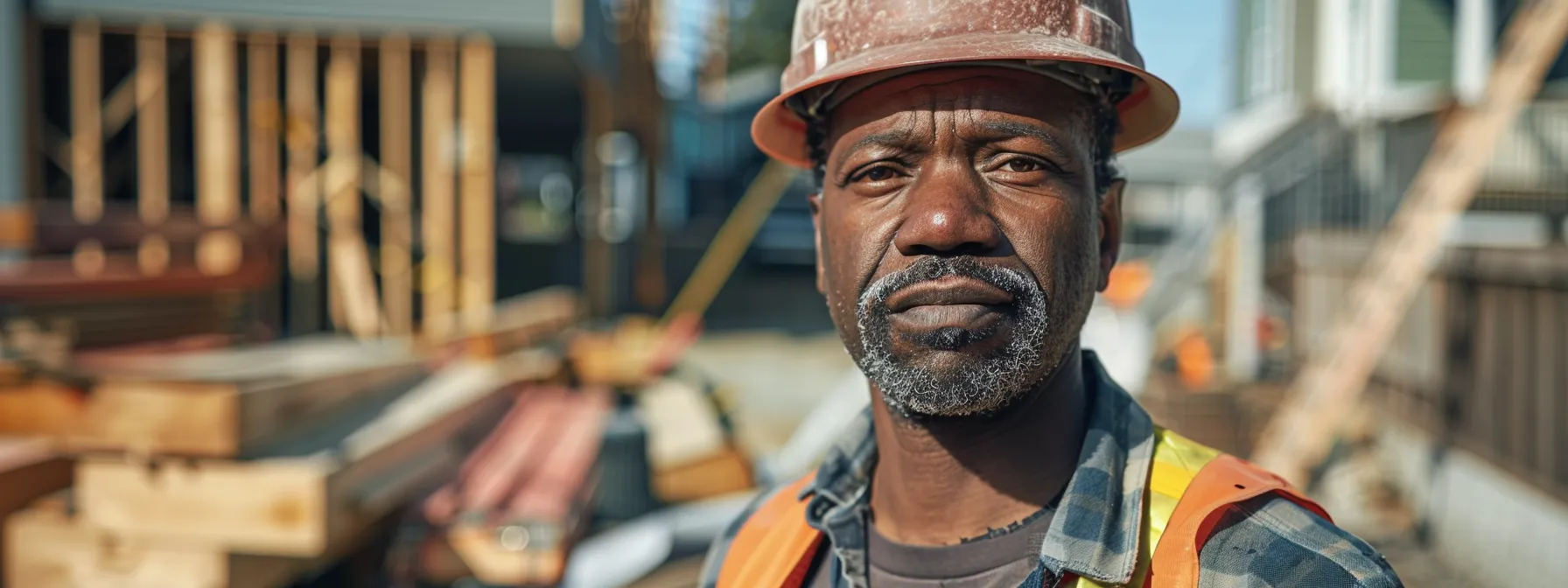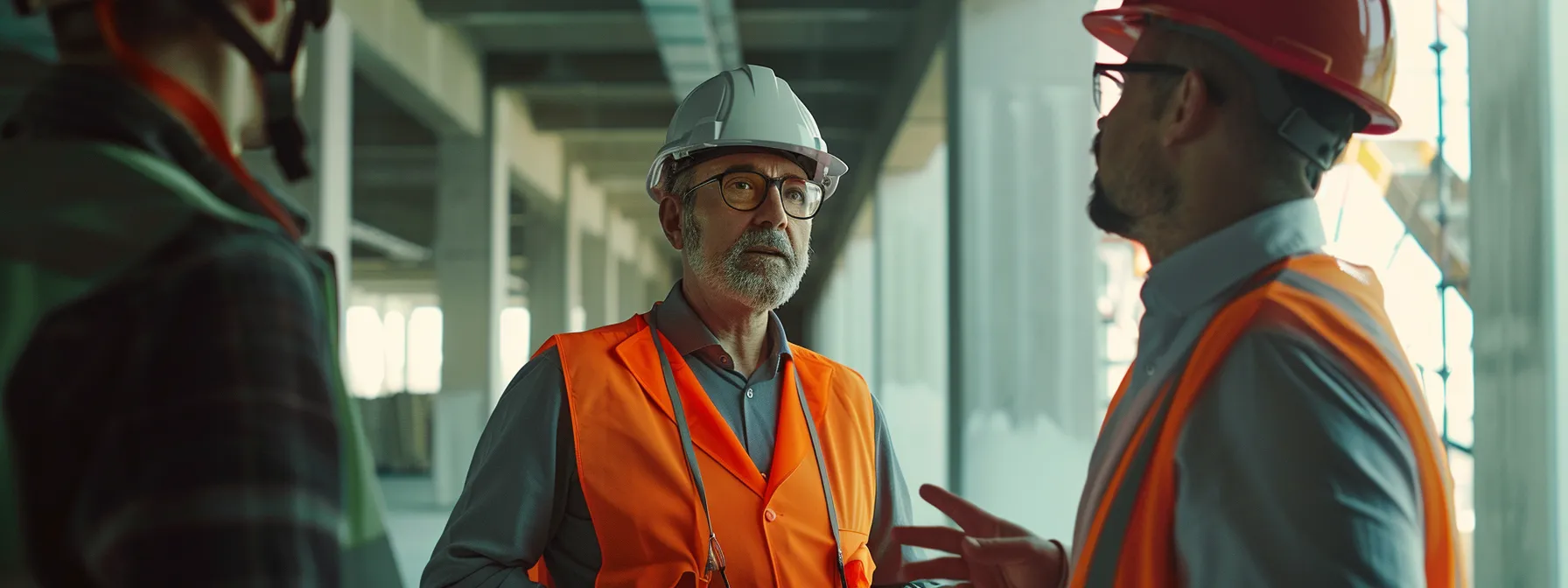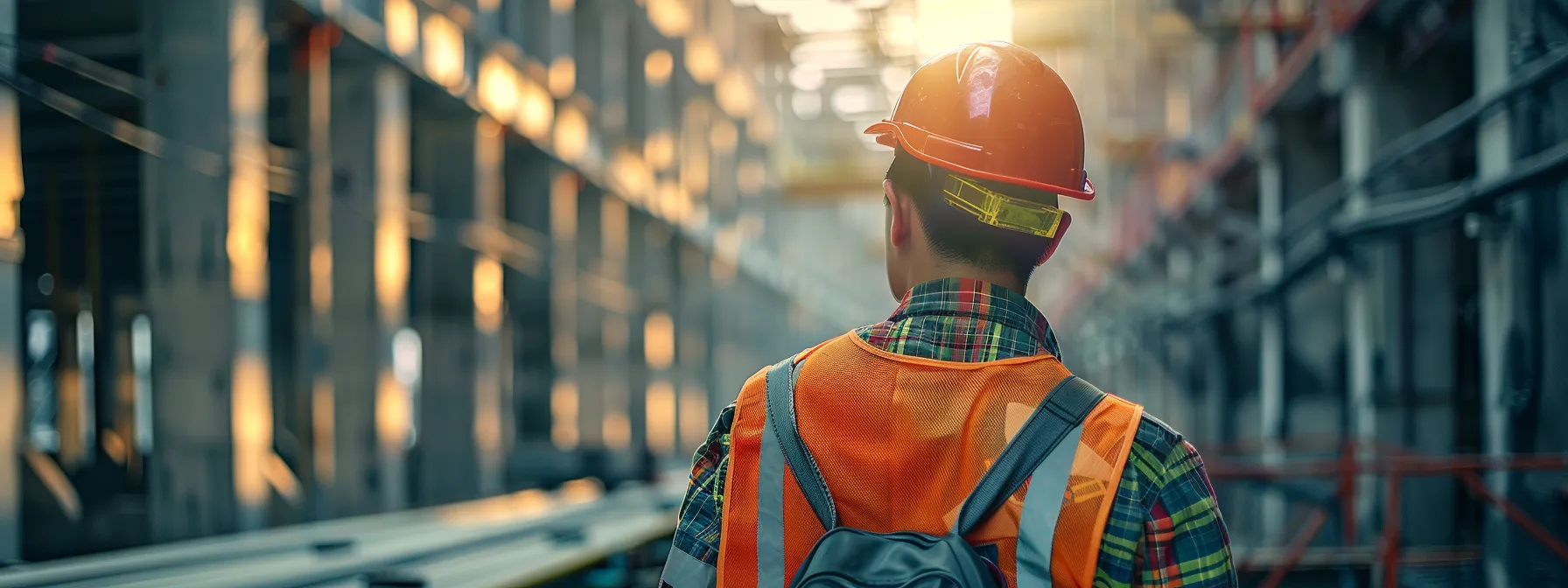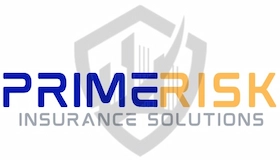If you’re swinging hammers or laying pipes for a living, trust me, getting the right insurance is as important as wearing a hard hat on site. Running into surprises on the job can happen, but with liability insurance, you’ve got a safety net for those ‘just in case’ moments. And let’s not forget, whether you own the gear or the whole workshop, property insurance is key to cover all your valuable tools and equipment. In this piece, we’ll break down how to snag an insurance policy that fits your work like a glove, protecting both your employment and your wallet. Keep those hard hats on and tools ready, because we’re about to lay down some serious know-how on staying secure in the risky world of construction.
Key Takeaways
- Contractor insurance offers a safety net for unexpected accidents and legal issues
- General liability and workers’ compensation are essential policies for contractors
- Partnering with the right insurance agency is key to tailored coverage
- Preventative measures and safety protocols reduce risks and insurance claims
- Understanding and choosing insurance deductibles and premiums is a crucial financial decision
Why Every Contractor Needs Insurance Protection

So, you’re a contractor, an electrician maybe, with a knack for wiring and making people’s homes a bit brighter. But let’s talk shop for a second. Ever thought about what happens if things go sideways? That’s where I want to get your gears turning about insurance. See, unlike home insurance, which covers the homeowner, a contractor’s insurance policy is there to back you up when you’re knee-deep in a project. It’s like a safety net—a bond that says, “Hey, I take my business seriously, and I’m ready to handle the bumps.” Getting down to brass tacks, the risks you deal with, whether it’s an unexpected spark or a slip of the wrench, can throw a contract through a loop. That’s not even touching on the legal stuff. Insurance steps up to the plate, taking a swing at those risks so you can keep doing what you do best, without the worry lines.
Understanding the Risks Contractors Face
Being a contractor, every job has its risks, right? Say you’re laying down pipes or installing cabinets, and suddenly there’s an accident—damage to the property or even an injury. Your policy acts like a shield, covering those costs so a simple mishap doesn’t knock you off your feet. This is where having that insurance isn’t just smart; it’s a game-changer. I’ve heard enough stories from fellow contractors to know that these hiccups happen more often than you’d think.
Now, if you’re a general contractor, you’ve got your hands full managing a site and keeping the project ticking like a clock. With a license to protect and clients to impress, the right insurance policy—from property coverage to life insurance—ensures you’re ready to take the heat if something doesn’t go according to plan. It’s not just about fixing what’s broken; it’s about protecting your livelihood and keeping that professional reputation shiny.
How Insurance Mitigates These Risks
See, if a lawsuit comes at you because something got busted on the job, contractor insurance steps in. It’s like your legal buddy, dealing with the cost of a lawyer, court fees, and all the stressful bits of California law. So, if an accident throws a curveball at your construction gig, you’re not left scrambling to cover the bills.
And on the money side of things, mishaps on the job can mean dealing with tax headaches—your cash flow can take a hit, and that can get messy. But with insurance, there’s a cushion. It helps keep your finances in check so one slip up with a nail gun doesn’t hammer down on your wallet too hard.
Types of Coverage Offered by Contractors Insurance Agencies

Alright, let’s get into the nitty-gritty of what insurance coverage looks like for someone in my line of work. You’ve probably seen those “instant quote” buttons on insurance companies’ websites, right? Well, clicking one of those for general liability is your first step to peace of mind. General liability is the big player—it’s pretty much invaluable. It’s the defense against claims that something you did on the job caused harm or damage. Now, add workers’ compensation to the mix, and you’re set. That’s the policy that’s got your team’s back if they ever get hurt while banging hammers or climbing ladders. Sidestepping financial pitfalls is what these insurance services are all about, ensuring that a sudden mishap doesn’t turn your hard-earned success into a tough break. A quick quote from contractors insurance could really save your skin. Let’s break down these protections and why they’re so key to the game.
Exploring General Liability Insurance
You know, I rolled into Phoenix last summer to tackle a series of drywall jobs, and one thing was clear—the city’s hustle means more chances for something to go awry. That’s where general liability insurance comes into play. It’s like having an invisible barrier around your work, stepping in when there’s an oops, whether it’s property damage or someone claiming a mishap.
Now, apart from guarding the daily grind, this coverage has a buddy called license bonds, and together they make a duo that’s tough to beat. While I’m zipping around in my truck from job to job, general liability insurance, along with the right auto insurance, is a combo that keeps me covered. And because I team up with an independent insurance provider, I get the commercial insurance solutions tailor-made for my biz without the runaround.
The Importance of Workers’ Compensation Coverage
Let’s say you’re on a site, and despite the safety talks, someone takes a fall or gets a shock. As a contractor, my sleep would be full of nightmares if I didn’t have workers’ compensation coverage. So here’s the skinny: this coverage isn’t just nice to have—it’s essential. My insurance agent hammered it home that if my crew gets zapped with an injury, workers’ comp means we’re not flat out of luck. A solid workers’ compensation plan keeps things square with the law and peace in the ranks.
Now, lean in and hear this—every insurance agent I’ve crossed paths with has the same tune: workers’ compensation is the muscle behind a safe job site. Without it, if one of my guys or gals trips up, a mountain of medical bills might tumble into my lap. And since I’m not just juggling tools but car insurance and general liability insurance too, having that reliable buffer means I can focus on the build instead of biting my nails over liability havoc.
Steps to Secure Your Policy With a Contractors Insurance Agency

Alright, so you’re convinced that having the right insurance is key to keeping your contractor business safe and sound. Next up, making sure you partner with the right insurance agency. Every contractor’s journey to protection starts with a good look at their business. For example, if you speed around town in a van full of tools, commercial auto insurance should be on your radar. And, of course, the basic shield for any job site messes—general liability insurance. Now, it’s not just about suiting up with policies; it’s about finding the coverage that fits you like a glove. That means huddling up with a contractors insurance agency to figure out what specific risks your business faces. Once you’ve got a clear picture, it’s all about comparing quotes. Got a fleet of work trucks? Then commercial auto is non-negotiable. Listen, it’s like picking tools for the job—you wouldn’t use a saw to hammer in nails, right? So don’t settle for insurance that’s not cut out for your exact needs. Weighing options and matching them to your business—that’s how you nail down the best plan.
Identifying Your Specific Business Needs
Before I chat with an insurance company, I always take a long, hard look at my daily grind. I need to know what’s unique about my work before I compare plans. It’s key because business insurance isn’t one size fits all, especially if you’re in the business of building stuff. What’s right for another contractor might not square with the needs of an insurance for construction company like mine.
I’ve learned that teaming up with a contractor insurance agency is like finding a new member for your crew. They help you sift through the options so you can line up the kind of coverage that makes sense for your own operation. It’s about getting that mix right – not too much, not too little, just the perfect amount to keep the business humming along safely.
Comparing Quotes and Coverage Options
Just like comparing wrenches at a hardware store, I start sizing up quotes with my eye on the details. That way, if a lawsuit stares me down, I’m confident my policy won’t flinch. I look at the coverage like a plumber eyes a pipe—knowing the right fit is out there, it’s just a matter of measurements and specifics.
Having worked on multiple condominium projects, I’ve learned to keep a keen eye out for the fine print—especially as a subcontractor where every penny counts. I run through the faq sections like a checklist, confirming what my hard-earned dollars are safeguarding before I sign on any dotted lines.
Common Claims in the Construction Industry and How to Avoid Them

In the thick of a construction zone, the chance of injuries or property damage can be as common as hammers and saws. Staying sharp on safety can mean the difference between a day’s wage and a payment for a claim. So, I keep a keen eye on prevention tips like they’re my most valuable tool. Firm on regulations, I reinforce safe practices to head off any potential mishaps on the job site. When it comes to property damage, being proactive is my mantra. I’m all about setting up surety measures upfront to reduce the risks. This way, my crew and I sidestep the common pitfalls that can snag a construction project and keep our record clean and our operation running smoothly.
Injury on the Job Site – Prevention Tips
Now, I’m a big believer in safety first, especially since carpentry can come with its share of close calls. By investing in regular training and safety gear, I slash the risk of injuries making sure my crew can go home safe every day. Plus, staying clear of accidents keeps those insurance claims at bay, which any insurance broker will tell you is a smart move, saving you from the headache and expense of dealing with damages.
Opting for top-notch safety protocols isn’t just about following rules—it’s about protecting my team and my business from unexpected turns. I’ve seen how quickly a job can go south when someone gets hurt, and let me tell you, the option of paying out for injuries bites into your profits way more than the cost of preventive measures. So, I do everything I can to make sure my jobsite’s as safe as can be; that way, my insurance policy stays just a safety net, not a financial lifeline.
Property Damage Claims – Proactive Measures
No one likes the sound of crunching drywall when it’s not supposed to crunch. Trust me, if you’re a handyman like me, proactive steps to avoid property damage are a must. I’ve turned to telematics to keep tabs on my equipment and materials, which reduces the chance of something going haywire and keeps the community I serve happy with my work.
My experience has taught me that investing in your crew with solid employee benefits leads to more careful hands on deck. When folks feel valued, they’re more likely to handle every wire and wood piece with care, and that sense of pride in their work makes a world of difference in preventing property damage.
Navigating Premiums and Deductibles for Maximum Benefit

So let’s dive into the money side of things for a sec. If you run a sole proprietorship or even if you’re driving a fleet of vehicles, the price you pay for insurance can feel like it’s shrouded in mystery. I’ve been through it, and I’m here to tell you that figuring out how your premiums are calculated doesn’t have to be a puzzle. It’s a mix of things—from what kind of work you do, to the wheels you roll up to the job site in, all of it can sway the cost. And then there’s that fee you agree to pay out of pocket before your insurance kicks in, that’s your deductible. Choosing that number is like playing darts; aim right and you could save yourself a chunk of change. Trust me, I keep my accountant on speed-dial to help me walk the tightrope between risk and reward, ensuring I’m not overpaying but still covered well. Getting this balance right means your business is protected without tossing cash down the drain.
Understanding How Premiums Are Calculated
When I try to decode how much I’m gonna shell out for my premiums, it’s like sending a fax—you need all the details in line for the machine to work right. So, the cost of my premiums is partly pegged to how risky my job is. If I’m up to my elbows in air conditioning units dangling from rooftops, my rates might be higher than if I’m doing indoor finish work. I’ve learned that the potential need for a lawyer if things go south or replacing pricey gear covered under builders risk ins also punches up the price tag.
I also keep in mind that the more I safeguard my operations, the sweeter the number on that premium can be. Things like having a secure place to park my van or investing in an extra round of air conditioning certifications can make a difference. Sure, it’s an upfront cost, but it’s like that extra coat of paint that really makes a wall look good—it’s going to save me down the road if I don’t have to cough up cash for damages or lawyer fees because I cut a corner to save a buck on builders risk ins.
Choosing the Right Deductible for Your Business
Choosing a deductible is personal, like picking out the right drill for the job — it’s gotta match the work. I’ve gone for higher deductibles to lower my premiums, because I’m confident in my crew’s ability to avoid mishaps. But you’ve gotta weigh your own comfort with risk and how it’ll impact your bottom line.
It’s a balancing act, sort of like walking across a beam — pick a deductible that’s too high and a small accident could knock the wind out of your financial sails. Go too low, and you might be forking over more every month than necessary. I always aim for that sweet spot where my payments are manageable and my coverage is reliable.
Frequently Asked Questions
Why is insurance critical for contractors?
Insurance for contractors is key because it protects against job risks, like accidents and property damage, ensuring they can work worry-free and handle mishaps without financial strain.
What types of insurance do contractors need?
Contractors should have general liability insurance to cover property damage and injuries, workers’ compensation if they hire employees, and commercial auto for work vehicles. Tools and equipment insurance can also be smart to protect their investments.
How do I pick the right policy from an insurance agency?
When hunting for the best insurance policy, start by comparing plans from multiple agencies, scrutinize coverage options and costs, and read the fine print to ensure it meets all your needs without hidden catches.
What are common construction insurance claims and prevention tips?
Theft, water damage, and worker injury lead construction insurance claims. Prevention includes securing sites, maintaining equipment, and emphasizing safety training to minimize risks and ensure a safer work environment.
Can you explain premiums and deductibles in contractor insurance?
Contractor insurance premiums are the regular payments you make for your coverage, while deductibles are the amounts you pay out of pocket before your policy kicks in after a claim.
Conclusion
Reliable protection with a contractors insurance agency is like a safety net for your business, keeping you safe from the financial fallout of job site accidents and legal hassles. It offers coverage tailored to your unique needs, from general liability to workers’ compensation, ensuring your team and your assets are covered. Choosing the right policy not only secures you against common industry risks but also maintains your reputation and peace of mind. By teaming up with the right agency, you set your business up for success, focusing on your craft without the stress of potential pitfalls.
